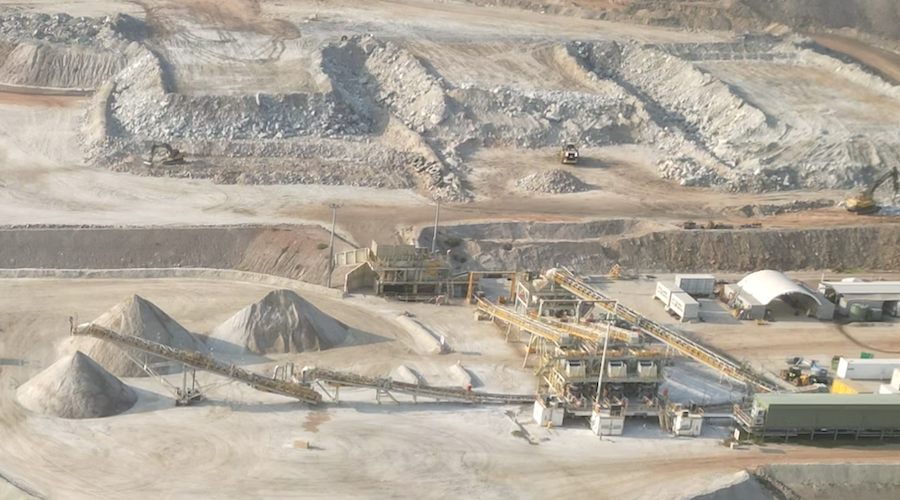Core Lithium halts mining on “tough” market conditions

Australia’s Core Lithium (ASX: CXO) has halted operations at its Finniss operations and flagged a significant write-down on the value of its assets as the effect of weak prices for the battery material begins to become evident among producers.
The company, Australia’s Northern Territory’s only lithium miner, had announced a review of its operations in December, suspending early works on its proposed second mine BP33, due to “tough” market conditions.
Core Lithium said on Friday that, as result of the review, it would revert to processing stockpiled ore and suspend operations at its Grants open pit mine, part of the multi-mine Finniss hard-rock lithium complex.
The producer said it had about 280,000 tonnes of ore stockpiled, which would allow its processing plant to continue operating until mid-2024 without any further mining.
The Grants mine is Australia’s newest lithium operation and the only one outside of Western Australia. It opened in October 2022, beginning production and sale of spodumene concentrate in February 2023.
More to follow
Lithium prices collapsed last year, defying even the most conservative forecast. According to analysts from Fastmarkets, spodumene concentrate is currently trading at $950 a tonne, compared with about $8,000 a tonne a year ago. Lithium carbonate is trading at $14,850 per tonne.
Experts predict that lithium carbonate prices in top consumer and producer China could fall by more than 30% this year from December 2023 levels, as increasing supply from all major producers is set to outpace the rise in demand from battery users.
The price rout will likely take its toll on high-cost lithium producers first, before reaching the world’s top miners of the battery metals, analysts said.
UBS expects global lithium supply to jump by 40% in 2024, to more than 1.4 million tons of lithium carbonate equivalent.
Output in top producers Australia and Latin America will rise 22% and 29% respectively, UBS said. Production in Africa is expected to double, driven by projects in Zimbabwe, the bank said.
Chinese production will also jump 40% in the next two years, said UBS, driven by a major CATL project in southern Jiangxi province.
The bank warned that lower lithium minerals prices will likely result in a potential halving in ASX lithium company profits in FY2025.
{{ commodity.name }}
{{ post.title }}
{{ post.date }}




Comments